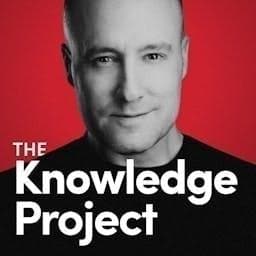What happens when a thoughtful investor sits down with a contrarian academic for a free-flowing, two-hour conversation? In this wide-ranging episode, Guy Spier reconnects with his former professor, Amar Bhidé, who’s the Professor of Health Policy at Columbia University Medical Center, for a dialogue that blurs the lines between economics, storytelling, philosophy, and life itself.
They begin by reflecting on paths taken—and those deliberately left behind. Professor Bhidé shares how a winding career through finance, policy, and academia has shaped his unconventional views on business education and the role of theory.
At the heart of the conversation is a simple but profound distinction: risk versus uncertainty. But this is no dry academic discussion. Instead, it opens into a deeper exploration of how we make decisions, how we explain the world, and why models often fail to capture what matters most.
Stories play a starring role—stories in business, in investing, in life. The two explore why narratives move us, how they can deceive, and what they reveal about human nature. From entrepreneurs to generals, from investors to doctors, Professor Bhidé argues that judgment and imagination remain our most vital tools.
There are digressions, of course—beautiful ones. Into mythology and scripture, literature and logic. Into why certain minds captivate us, and why what we choose to read says something about how we choose to live.
This isn’t a podcast about one big idea—it’s about many. And the spaces between them. It’s about learning to see and finding meaning—quietly, sometimes stubbornly—just beyond the known.
Full transcript available here: https://aqfd.docsend.com/view/g2vwrtr7yiq9cwnp
(00:00:00) Setting the Stage: Uncertainty, Progress, and a Life’s Work
(00:06:21) A Distinction That Matters
(00:14:46) The Power of Plausibility: How Investors Use Stories to Decide
(00:22:20) Data Can’t Dream: Why Judgment and Imagination Still Rule
(00:28:34) First Principles, Human Realities: Rethinking How We Know
(00:47:55) More Than Facts: How Stories Shape Action and Identity
(00:55:49) Duty Without Reward: Eastern Philosophy Meets the Business Mind
(01:03:27) Happy with Small Takes: Reflections on Power, History, and the Self
(01:10:36) Books, Minds, and Conversations That Stay With You




































